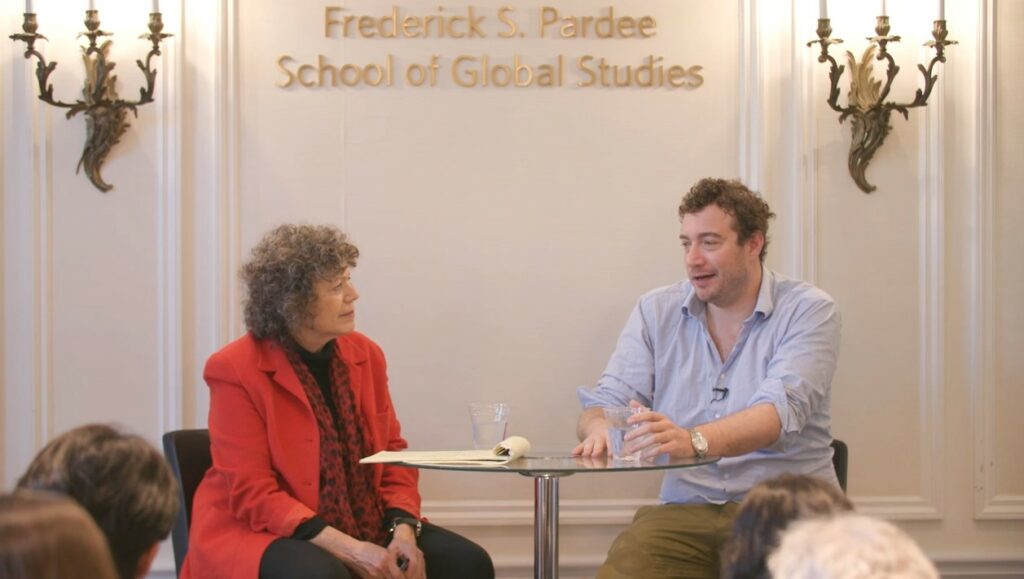CSE Hosts Discussion on Rise and Spread of Qanon | The Frederick S. Pardee School of Global Studies – Boston University

On October 19, 2022, the Center for the Study of Europe (CSE), an affiliated center of Boston University’s Frederick S. Pardee School of Global Studies, hosted journalist and podcaster Nicky Woolf for a discussion on his journey investigating political conspiracy theory and movement Qanon.
Woolf is an investigative journalist whose interests lie at the intersection of politics, technology, and digital subculture. His Audible podcast – Finding Q: My Journey into QAnon – dives into the online and offline world of QAnon in a search to find the shadowy figure behind it all and the legacy they’ve created.
During the event – moderated by Vivien Schmidt, Jean Monnet Professor of European Integration and Professor of International Relations and Political Science at Boston University’s Frederick S. Pardee School of Global Studies – Woolf outlined the origins of Qanon, its absorption of other conspiracy theories, how it came to influence modern politics, as well as the spread of this and other movements. When asked about the motivator for Qanon and similar conspiracy theories, Woolf claimed that the internet and the was information is disseminated not only made something like this possible but inevitable.
A recording of the event can be viewed below.
[embedded content]
The mission of the Center for the Study of Europe is to promote understanding of Europe through its cultural heritage; its political, economic, and religious histories; its art, literature, music, and philosophy; as well as through its recent emergence as a new kind of international form through the European Union (EU). Operationally, the center provides a focal point and institutional support for the study of Europe across Boston University through coordination of teaching missions, support of research, community-building among faculty and students, and outreach beyond the University. Visit the center’s website for more.
This article has been archived for your research. Find the original article here.

